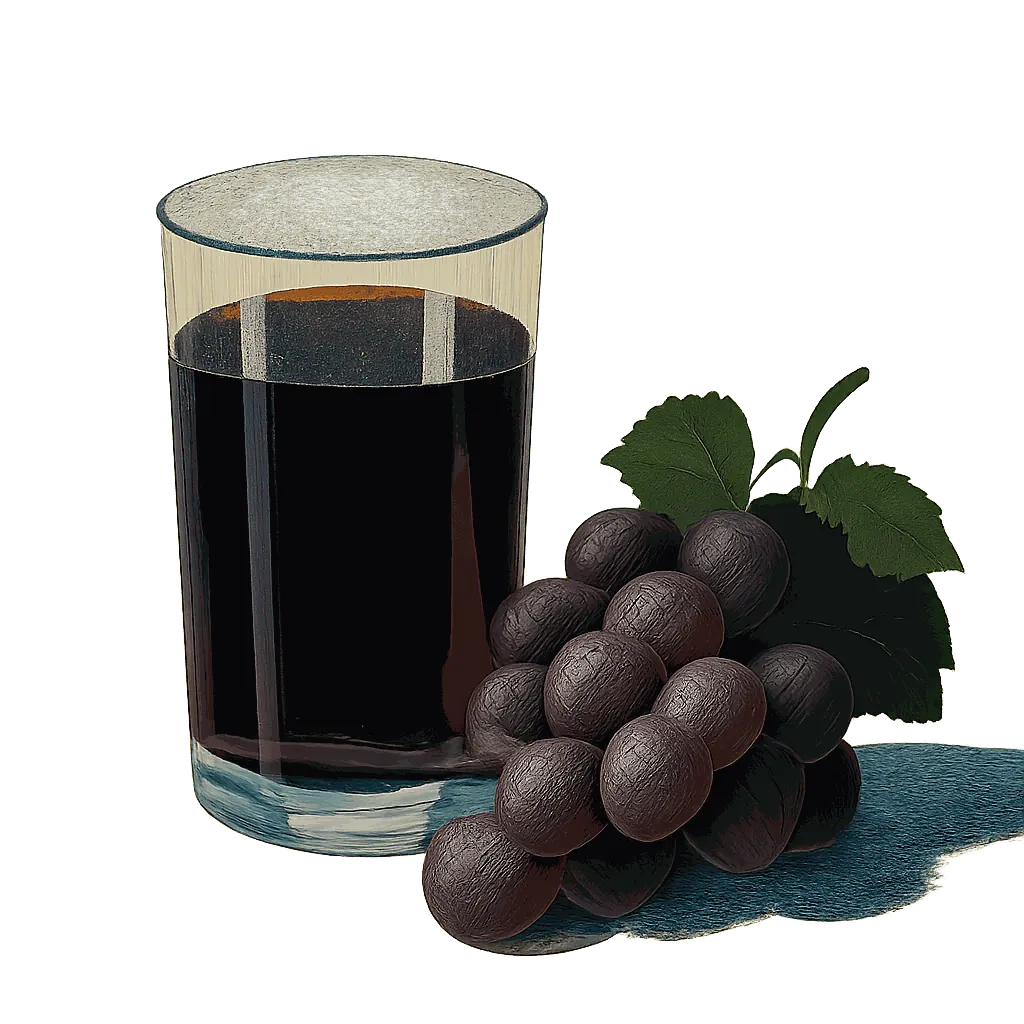Perfect Pairings & Recipes for
Sauvignon Blanc (Pouilly-Fumé)
.webp)
Unlock the perfect flavour pairings for Sauvignon Blanc (Pouilly-Fumé) according to data science. Explore unique recipes and discover the hidden mathematics of flavour.
Sauvignon Blanc (Pouilly-Fumé) instantly conjures the embrace of flint and the kiss of grapefruit. But look beneath its obvious sourness and you'll discover a captivating symphony of softer notes, a whisper of chalk, a hint of petrichor, and subtle accents reminiscent of grass. These are the notes that lend it such remarkable, resonant depth. The key to finding the perfect pairing for Sauvignon Blanc (Pouilly-Fumé) is understanding how these notes harmonise.
To map these harmonies, we analysed thousands of ingredients, breaking each one down across 150 flavour dimensions, identifying which notes complement and contrast. Our findings reveal, for instance, how light soy sauce's glutamic tones can enrich Sauvignon Blanc (Pouilly-Fumé), or how caster sugar's saccharine notes create an unexpectedly harmonious bridge with the crisp aroma.
Flavour Profile Of Sauvignon Blanc (Pouilly-Fumé) Across 150 Dimensions Of Flavour
Flavour wheel chart showing the dominant flavour notes of Sauvignon Blanc (Pouilly-Fumé): Grapefruit, Flint, Limestone, Grassy, Petrichor, Plum, Elderflower, Smoky, Honeyed, Peach, Malic, Tomatoey, Sulfurous
An ingredient's flavour profile is determined by its core characteristics (e.g. acidic, herbal, and vegetal) enhanced by layers of subtle aroma notes (outer bars). When pairing ingredients, aim for a mix of core traits to build balance, and select complementary aroma notes to create harmony.
The Art of Flavour Pairing
To understand how flavour notes harmonise, we analysed more than 50,000 popular ingredient combinations. By exploring these pairings, we identified specific flavour notes that frequently occur together, indicating they share a harmonious relationship.
The Flavours That Harmonise With Grapefruit Notes
Strength of Association Between Flavours
The flavours most associated with grapefruit notes are: Gentian, Chamomile, Limestone, Sugary, Pear, Honey, Rose, Plum, Raspberry, Oceanic, Fishy, Blackberry, Almond, Malic, Ficus.
Our analysis shows that the flavour of grapefruit is strongly associated with the flavour of sugar. This suggests we should look for ingredients with a sugary flavour, such as caster sugar, when pairing with the grapefruity aromas of Sauvignon Blanc (Pouilly-Fumé).
The recipes below provide inspiration for pairing Sauvignon Blanc (Pouilly-Fumé) with caster sugar.
Harmonious Flavours Of Sauvignon Blanc (Pouilly-Fumé)
Just as our analysis shows that grapefruit and gentian flavour notes frequently pair together, we can identify the full profile of flavours that harmonise with each of the flavour notes present in Sauvignon Blanc (Pouilly-Fumé). E.g. the chalky flavours of Sauvignon Blanc (Pouilly-Fumé) are often used with cocoa and coffee-like flavours.
The notes complementing the various aromas of Sauvignon Blanc (Pouilly-Fumé) can be seen highlighted in the pink bars below.
Flavour Profile Of Sauvignon Blanc (Pouilly-Fumé) And Its Complementary Flavour Notes
Flavour wheel chart showing the dominant flavour notes of Sauvignon Blanc (Pouilly-Fumé): Grapefruit, Flint, Limestone, Grassy, Petrichor, Plum, Elderflower, Smoky, Honeyed, Peach, Malic, Tomatoey, Sulfurous
Matching Flavour Profiles
The flavour profile of light soy sauce offers many of the accents complementary to Sauvignon Blanc (Pouilly-Fumé), including glutamic and saline notes. Because the flavour profile of light soy sauce has many of the of the features that are complementary to Sauvignon Blanc (Pouilly-Fumé), they are likely to pair very well together.
Prominent Flavour Notes Of Light Soy Sauce Are Represented By Longer Bars
Flavour wheel chart showing the dominant flavour notes of Light soy sauce: Glutamic, Saline, Wheat, Caramel, Proteolytic, Seaweed, Molasses, Oxidized, Lactic, Acetic, Sesame, Fungus, Maltol, Toasted, Tea-Like, Allicin, Yeasty, Rice
The chart above shows the unique profile of light soy sauce across 150 dimensions of flavour, while the recipes below offer inspiration for bringing these flavours together with Sauvignon Blanc (Pouilly-Fumé).
Recipes That Pair Sauvignon Blanc (Pouilly-Fumé) With Light Soy Sauce
Linked Flavour Notes
Looking at the aroma accents that are most strongly associated with the various flavours of Sauvignon Blanc (Pouilly-Fumé), we can identify other ingredients that are likely to pair well.
Sauvignon Blanc (Pouilly-Fumé)'s Harmonious Flavours And Complementary Ingredients
Sauvignon Blanc (Pouilly-Fumé)'s Strongest Flavours
Complementary Flavours
Ingredients with Complementary Flavours
Flavour groups:
Nectarous
Acidic
Floral
Herbal
Spice
Maillard
Earthy
Woody
Carnal
The left side of the chart above highlights the aroma notes of Sauvignon Blanc (Pouilly-Fumé), along with the complementary aromas associated with each note. While the right side shows some of the ingredients that share many of the aroma accents complementary to Sauvignon Blanc (Pouilly-Fumé).
Prominent Pairings
Our analysis identifies dishes that pair well with Sauvignon Blanc (Pouilly-Fumé) and highlights the prominent ingredient combinations within these recipes. Key pairs include red chilli and coconut offering fresh nuttiness, fish sauce and bird's eye chilli for pepperiness, mint and lemongrass for resinous depth, and lime juice and lime for a complex pomeloide undertone. Explore these combinations to unlock Sauvignon Blanc (Pouilly-Fumé)'s hidden complexity, reveal deep nuance, and elevate its vibrant character.
Ingredient Combinations Among Dishes That Pair With Sauvignon Blanc (Pouilly-Fumé)
Flavour groups:
Sweet
Sour
Botanic
Herbal
Spice
Vegetal
Umami
How Flavonomics Works
We've pioneered a unique, data-driven approach to decode the intricate art of flavour pairing. Our goal is to move beyond intuition and uncover the science of why certain ingredients harmonise beautifully. This rigorous methodology allows us to provide you with insightful and reliable pairing recommendations.
Our analysis begins with over 50,000 carefully selected recipes from acclaimed chefs like Galton Blackiston, Marcello Tully, and Pierre Lambinon. This premium dataset ensures our model distils genuine culinary excellence and creativity.
Each ingredient from these recipes is deconstructed across 150 distinct flavour dimensions, creating a unique numerical "flavour fingerprint." This quantification allows us to apply advanced analytical methods to identify complex patterns between flavour notes.
We identify popular ingredient combinations that frequently appear in our recipe database. Regression analysis is then performed on these pairings to statistically validate and pinpoint truly harmonious flavours.
These insights drive our predictive model, which allows us to take any ingredient (e.g., Sauvignon Blanc (Pouilly-Fumé)), analyse its detailed flavour profile, and accurately reveal its complementary flavours and perfect ingredient partners.
Explore More
Discover more ingredient profiles and expand your culinary knowledge. Each ingredient page offers detailed analysis of flavour profiles, pairing insights, and culinary applications.
The content on our analysis blog is semi-automated. All of the words were manually written by a human, but the content is updated dynamically based on the data.


